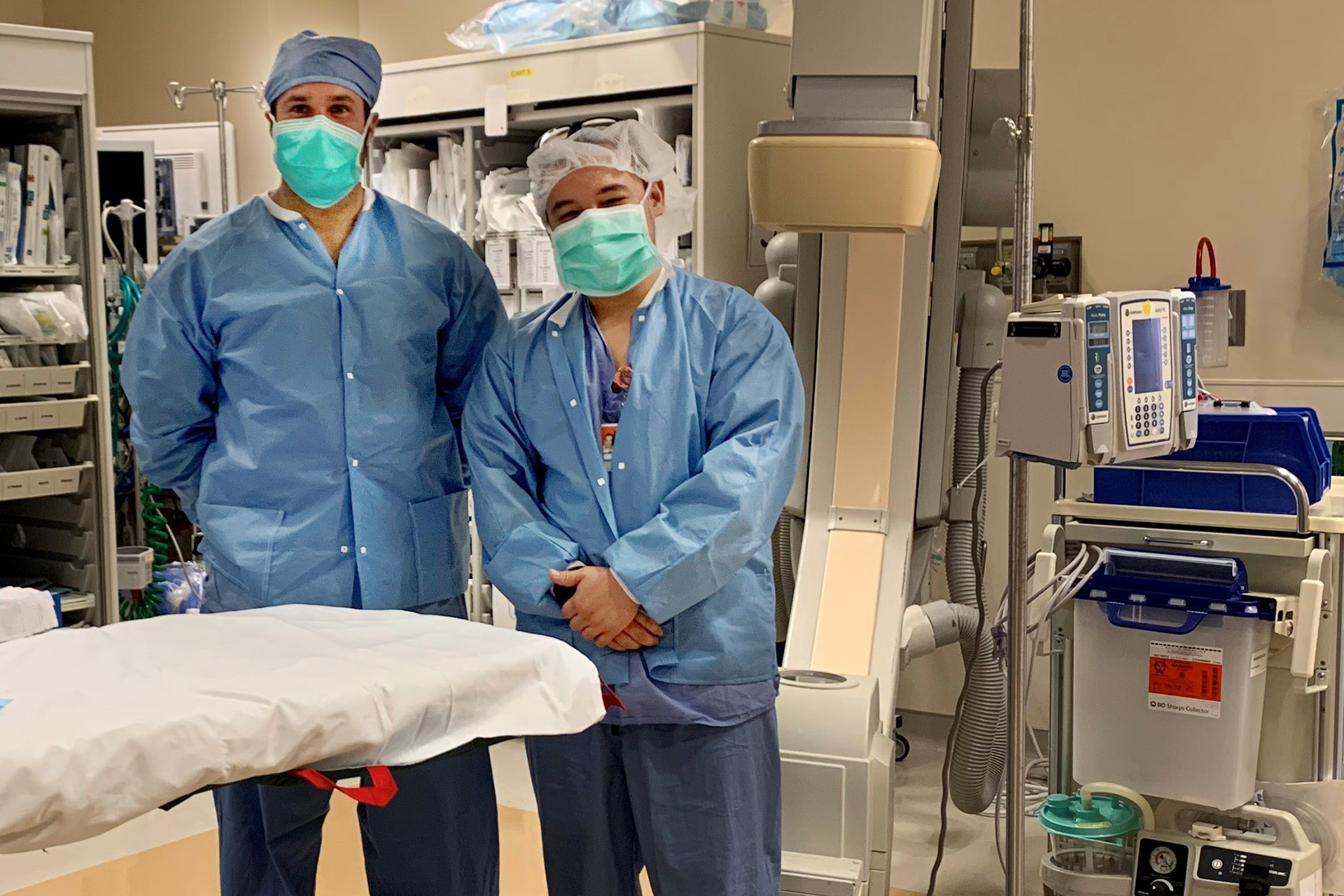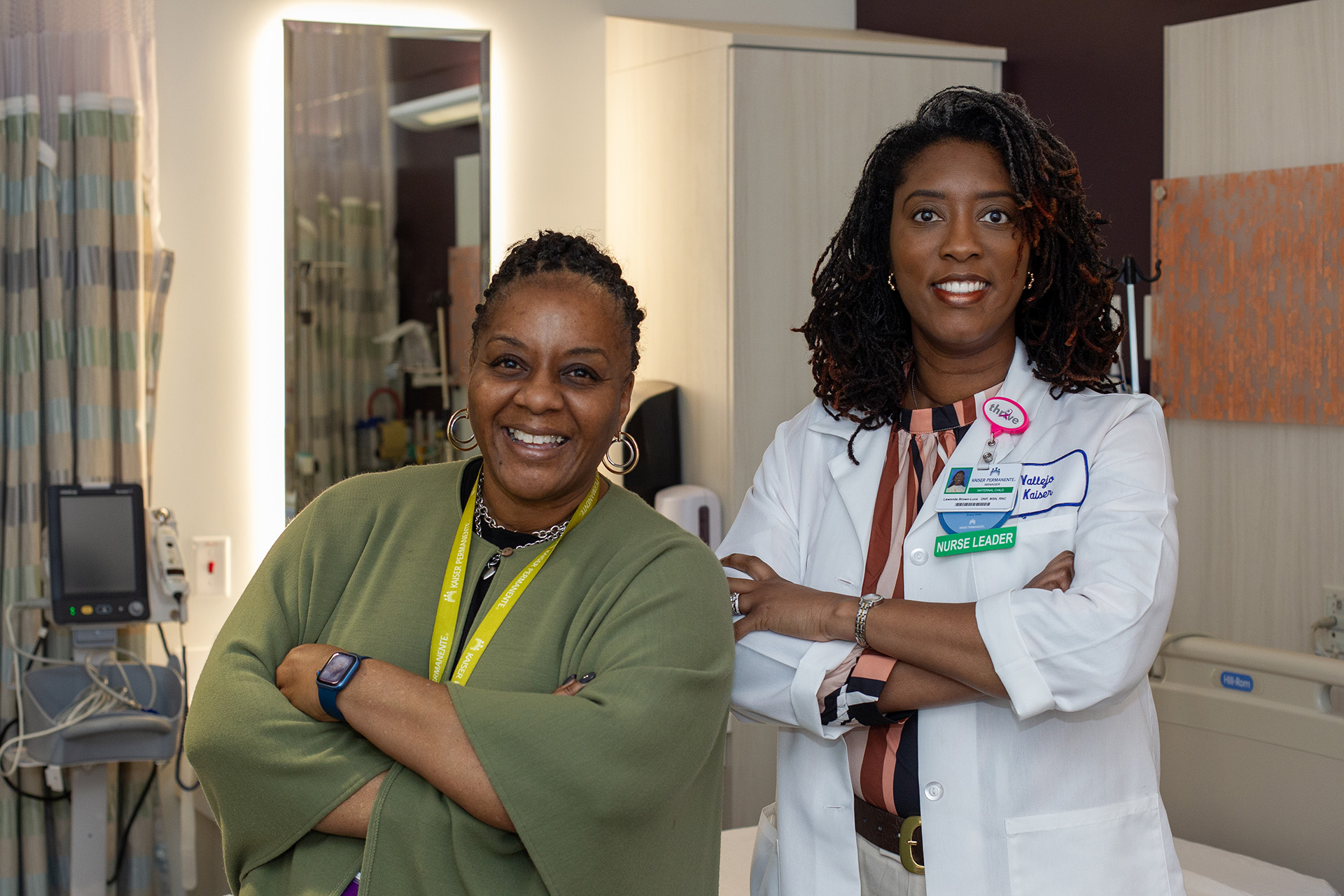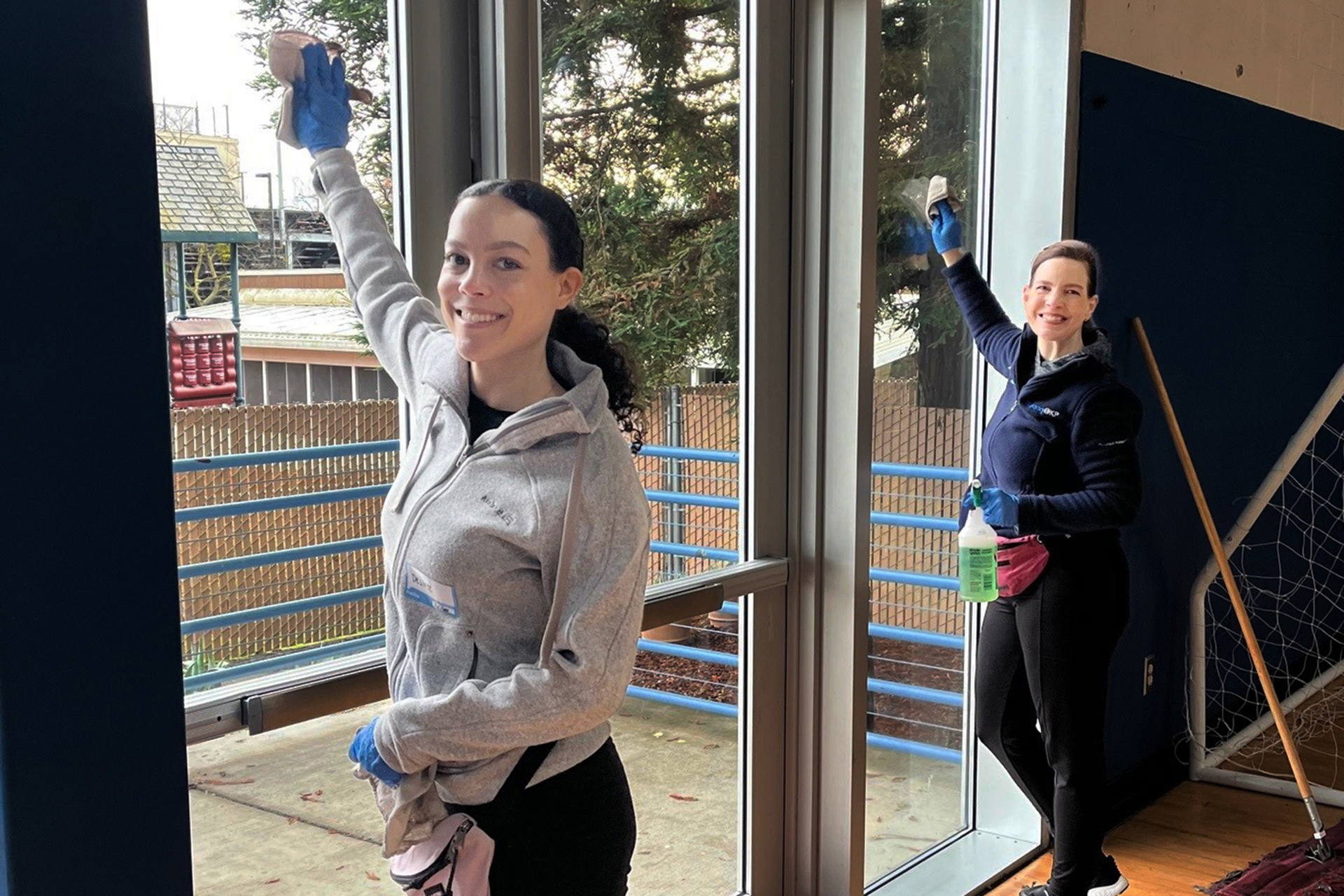A 62-year-old Aptos mountain biker is lucky to be alive thanks to the quick action of a trio of Kaiser Permanente Santa Clara caregivers.
Geoff Glasspool, Peter Szpara, and Dennis Romualdo, radiologic technologists who work at the Kaiser Permanente Santa Clara Medical Center, were mountain biking in late December when they came upon a bicyclist who had fallen off his bike in cardiac arrest near the entrance to The Forest of Nisene Marks State Park in Santa Cruz County.
“We saw him down and did what we’re trained to do,” Glasspool said. “We checked for his pulse and started CPR.”
That action kept Dave Smith’s blood circulating and ultimately saved his life.
“We all got off our bikes and tried to figure out what was going on with him,” recounted Romualdo. “He was turning blue, so it was like, ‘let’s get to work.’”
“They were my angels,” said Smith, who doesn’t remember anything about the incident.
Smith had been out bicycling with a friend, who also took turns performing powerful chest compressions on Smith as the group waited for first responders to arrive.
“We were very lucky to have extra hands to switch off doing CPR,” Szpara said.
“Performing high-quality CPR requires a lot of strength and a few minutes of doing it can seem like forever,” Glasspool added.
Smith, a Kaiser Permanente member, had collapsed and crashed his bicycle near a guard shack at the entrance to the forest. A park ranger inside called 911 using a cell phone.
“We saw him down and did what we’re trained to do,” Geoff Glasspool, Kaiser Permanente Santa Clara Medical Center radiologic technologist
On a break from CPR, Szpara used his own cell phone to alert the nearest hospital of the situation.
When the ambulance and fire truck arrived about 13 minutes later, EMTs immediately pulled out their automatic external defibrillator and started working on Smith.
“They had to shock him 4 times,” Szpara said. “And his heart finally started beating normally again while he was being loaded into the ambulance.”
At the local hospital, Smith had an electronic pacemaker and defibrillator implanted, then he was connected with his Kaiser Permanente care team in San Jose for follow-up care.
Smith said the incident was a wake-up call for him.
“I admit I hadn’t been feeling well for a while before this happened but continued working and living carelessly,” he said. “But now I’m following my doctor’s orders, eating right, and being more careful.”
He said he will always be grateful to the Kaiser Permanente employees who treated him on the side of that remote road.





This Post Has 2 Comments
This was such a touching story. Awesome job to all of you !!!!!
As a mountain biker, and KP employee, grateful for, and such pride for the KP angels’ response!